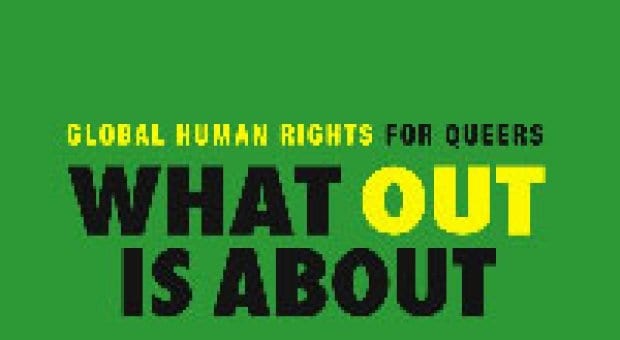The emphasis on international human rights at this year’s Pride is revitalizing the event, says Pride Toronto’s executive director.
“Given the diversity of queer communities in Toronto, many have fled their homelands,” says Fatima Amarshi. “They’ve been tortured, raped, culturally shunned at the very least. Given the nature of our community and its diversity these are issues that are of concern to all of us.”
Amarshi says her own experience in emigrating from Tanzania has been instructive.
“I had no concept of Pride,” she says. “There are possibilities and opportunities I could not fathom until I came here.”
Amarshi says that while the fight is not over in Canada it is time to look at international issues.
“A few years back we decided to look back and see where we were and get back to our roots,” she says. “There are still cultural battles to be fought here and there’s still a hell of a lot of cultural homophobia. But you get to a point where the cultural and legal landscape has changed. We’re focusing on a new battlefront.”
Amarshi says this year’s Pride will mark an all-out effort to address international struggles. The campaign’s name, which will be carried over to future Prides, is Global Human Rights for Queers: What Out is About. The specific slogan for this year, with a focus on Jamaica, is Dying for Justice. International grand marshal Gareth Henry was the leader of Jamaica’s gay and lesbian lobby group until he was forced to flee the country after death threats.
There will be a three-day exhibit at the 519 Community Centre beginning on Fri, Jun 27, specially-commissioned short films to be broadcast on Pride’s three giant screens and an opportunity for participants to tell their own stories on the screens via text messaging. The entire Pride Sunday event will also be webcast around the world on Pridetoronto.com.
Amarshi says the films — which she calls public service announcements (PSAs) — will offer Pride participants onsite and around the world a look at the realities of queer life in other cultures.
“You are going to get this message coming to you, both to raise awareness of the issues and to raise awareness of resistance, not just victimization stories,” she says.
“Wherever you are in the world, not only do you see the events, you get to see the PSAs, the grand marshal. There’s a 1-800 number people can call to tell their stories via text messaging. People will have the opportunity to actually interact with willing people onsite and potentially millions of people who are watching around the world.”
Amarshi says the webcast could be a revelation for people in some countries.
“You may never have seen a positive image,” she says. “Now through a click of a mouse you’ll be able to see a community, a positive image of who you are. I can imagine that could resonate quite profoundly with people who came here because of those issues.”
Elle Flanders, the local filmmaker who heads up the human rights campaign at this year’s Pride, says the response from members of those communities has been enthusiastic.
“We did a call to various communities, especially black and Caribbean communities,” she says. “The reception has been fantastic.”
Flanders says people appear to have been energized by the international focus.
“I’ve had people stop me going down the street and say, ‘It’s so great you’re doing this. We’ve been waiting for something like this,'” she says. “It’s very much about this incredible show of support for communities beyond ours. This is our first year to really make an impact.”
Flanders says there will be about 150 volunteers marching in the parade in support of the focus on Jamaica.
“Gareth will be at the front and will be carrying the flag of Jamaica and a rainbow flag,” she says. “Then there will be probably 150 people from various communities wearing greenT-shirts in Jamaican colours with various banners that will tell a narrative.”
Flanders says the banners will begin with Dying for Justice, then There’s Nothing Irie About It, followed by a banner with the overall Pride theme of Unified, and concluding with Global Human Rights for Queers: What Out is About.


 Why you can trust Xtra
Why you can trust Xtra


